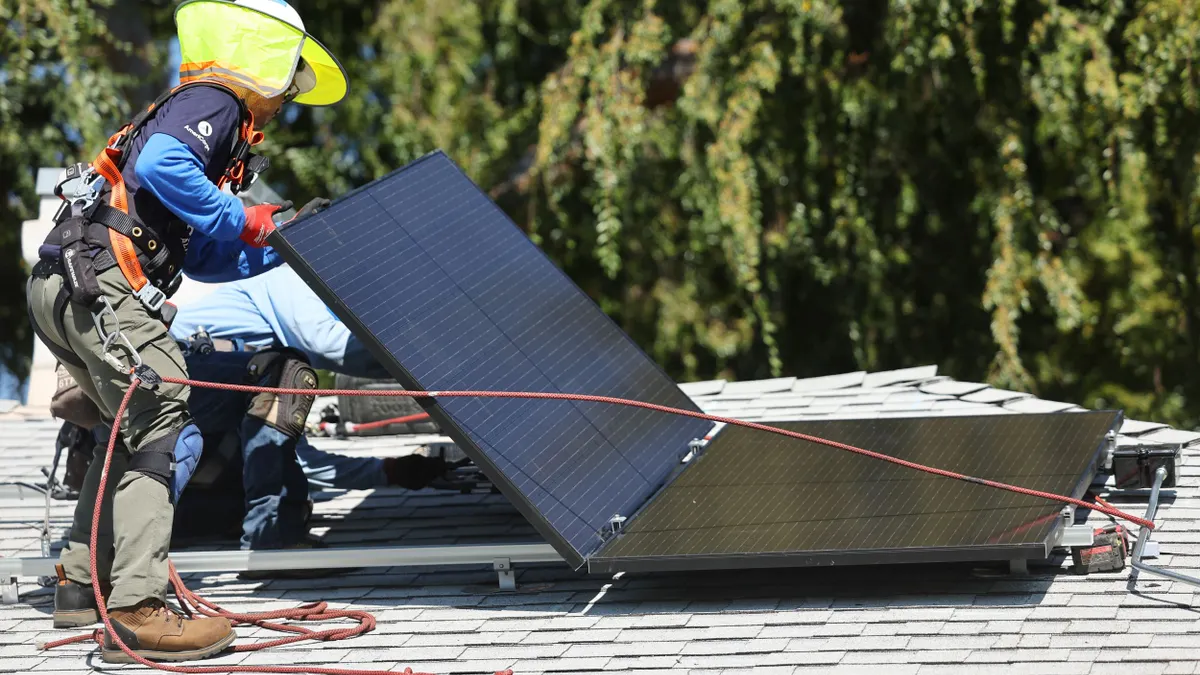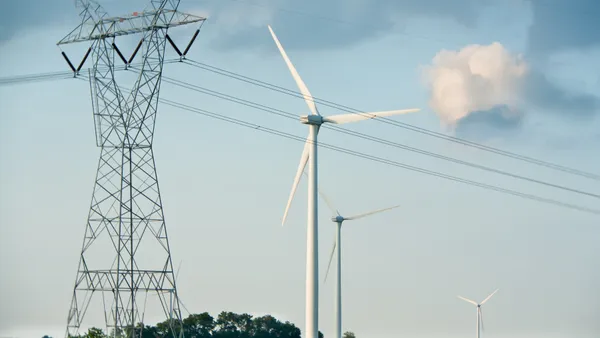Dive Brief:
-
Total corporate funding for solar companies — including venture capital, public market and debt financing — fell 39% year-over-year in the first half of 2025, according to data from Mercom Capital Group. Energy storage companies saw funding drop 41% over the same time period, according to Mercom.
-
Although total funding declined, project acquisitions and merger activity picked up, likely driven by decreased valuations, according to Raj Prabhu, CEO of Mercom, which collects data on financing deals announced around the globe, excluding data on Chinese companies.
-
Despite an early phase-out of renewable energy tax credits under the One Big Beautiful Bill Act, having the final details in hand could be enough to prompt more investor activity in the second half of 2025, Prabhu said.
Dive Insight:
Investors dislike uncertainty, so it should be no surprise that financing for solar and storage companies took a dive in the first half of the year, according to Prabhu. But the consulting firm's data also points to a handful of bright spots.
Solar public market financing dropped 73% from $1.7 billion in the first half of 2024 to $467 million in the first half of 2025, according to Mercom. The total value of venture capital and private equity funding also fell about 50% year over year, but the number of individual deals grew from 29 to 32.
It's not entirely clear, Prabhu said, what may have prompted investors to pursue more, but smaller, deals in the solar sector.
If investors were locking in good deals during the downturn, they weren’t alone. Nearly 20 GW of existing solar assets changed hands in the first half of 2025, compared to 18.5 GW over the same time period in 2024. Mergers and solar company acquisitions also rose, led by investment firms and utilities.
“When the market has so much volatility and uncertainty, there are always deals to be made, assets to be picked off,” Prabhu said. “So if investors see a good deal — an undervalued asset, an undervalued company — because of the uncertainty ... they are going to do those deals and acquire that company.”
Storage took an even bigger hit than solar, with venture capital and private equity falling 29% across fewer deals, public market funding down 43%, and just three mergers and company acquisitions, down from 14 in the first half of 2024.
However, acquisitions of energy storage projects more than doubled, and venture capitalists are showing an interest in alternative storage technologies like sodium-based batteries, according to Mercom.
Investment trends should begin to stabilize and possibly recover toward the end of this year now that Congress has completed the reconciliation process, Prabhu said. While the outcome may not have been favorable for renewable energy companies, knowing what the policy landscape looks like going forward should help investors identify the companies that are best positioned to pivot.
And there is some evidence from the quarterly data that the solar sector is already adapting, Prabhu said. Debt financing ticked upward slightly in the second quarter of 2025, suggesting that some of the development plans solar companies put on hold in early 2025 have already begun to move forward.
“The demand is there from data centers and AI ... but the rules of the game itself have changed in the last couple of quarters,” he said. “The players who understand this early will get ahead and define the next chapter of the U.S. and global solar industry going forward.”















